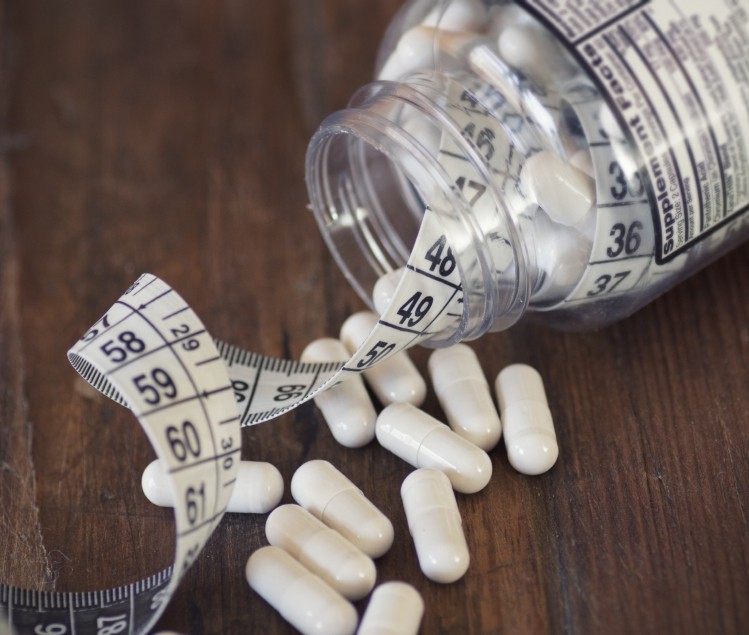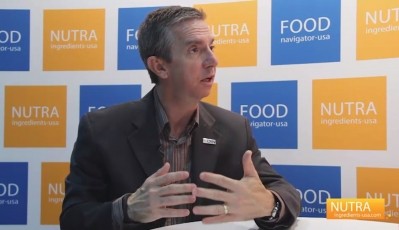Weight loss and energy products linked to majority of ER visits for supplement users

With about 50% of the US population – or 150 million people – identified as supplements users, the figure of 23,000 represents about 0.015% of dietary supplements users.
Data published in the high profile New England Journal of Medicine indicates that about 66% of emergency department visits were estimated to be linked to “herbal or complementary nutritional product”, with weight loss products contributing 25.5% of this, energy products contributing 10%, and sexual enhancement contributing 3.4%.
“Although the numbers of emergency department visits and hospitalizations were less than 5% of the numbers that have been reported for pharmaceutical products previously, dietary supplements are regulated and marketed under the presumption of safety,” wrote the authors, led by Andrew Geller, MD, from the Division of Healthcare Quality Promotion at the Centers for Disease Control and Prevention.
The findings are based on data from 63 emergency departments from 2004 through 2013, and not on the official Food and Drug Administration’s Serious Adverse Event Reporting database for dietary supplements.
“Adverse events from supplements are extremely low given their widespread usage”
Dan Fabricant, PhD, executive director and CEO of the Natural Products Association, was critical of the study, saying: “The laws that regulate supplements require official reporting of adverse events so that the regulators, the health care community and others can review the data and make informed public policy decisions. This so-called study excludes that very data, which is more than puzzling because it was written in part by FDA officials who know this.
“The facts are that adverse events from supplements are extremely low given their widespread usage, and most of these are the result of three factors: accidents, people not consulting with their doctor, or misuse of a product combined with other health factors. Supplements are safe, which is why millions of Americans use them every day.”
Dr Fabricant added that, according to government data, there were 3,249 Adverse Event Reports for 2012, a far smaller number than the 23,000 annual average cited in the author’s report.
Study details
Dr Geller and his co-workers report that women were over three times more women were estimated to visit the ER due to adverse events linked to weight loss products, while the female:male was 1:1 for energy products. Men were significantly more likely to visit the ER due to adverse events linked to sexual enhancements products and bodybuilding products.
Almost 72% of supplement-related adverse events involving palpitations, chest pain, or tachycardia were linked to weight-loss or energy products, added the researchers.
Over 6,000 of the estimated 23,000 emergency department visits were for people aged between 20 and 24 (and 58% of these were linked to weight-loss or energy products), with a further 3,500 for people aged 35-49.
About 40% of all emergency department visits for supplement-related adverse events in people aged 65 or older were linked to choking or pill-induced dysphagia or globus, added the researchers.
“The FDA recommends limiting the size of pharmaceutical tablets to 22 mm and requires the reporting of tablet size and shape on abbreviated new-drug applications,” they wrote. “However, there are no size recommendations or similar reporting requirements for dietary supplements. Large amounts or multiple types of micronutrients are often packaged in a single large pill, and many micronutrient products approaching or exceeding 22 mm are commercially available. Considerations for reducing the number of emergency department visits for swallowing problems include decreasing the size of supplement pills or using other delivery vehicles (e.g., liquids, gels, or powders), particularly for micronutrients for older adults, along with educating patients on methods for avoiding swallowing problems.”
‘Reasonable takeaways for the industry’
Duffy MacKay, ND, senior vice president, scientific and regulatory affairs for the Council for Responsible Nutrition, said that the results reinforce that dietary supplements are safe products, particularly when put into context with the number of people – over 150 million Americans – who take dietary supplements every year.
“That number becomes even smaller when you eliminate the products that are not dietary supplements and exclude the ER visits that resulted from eye drops, ear drops, and other OTC and non-dietary supplement products inaccurately included by the researchers to make their projections for dietary supplements,” he said.
“However, we do appreciate the elements of this study that present reasonable takeaways for the industry, and are pleased to confirm that companies are already responding to many of these suggestions made by the study authors. For example, when it comes to risk of choking, there have been great innovations made to assist consumers who have trouble swallowing capsules and tablets. Adult supplement users have many options, including liquids, gummies, melts or effervescent powders.
“Additionally, during the ten year span analyzed in this study, the responsible industry lobbied for and helped to enact key dietary supplement legislation and regulation to improve consumer safety. These include the Anabolic Steroid Control Act of 2004, the Adverse Event Reporting law of 2006, Good Manufacturing Practices in 2007, and the Designer Anabolic Steroid Control Act of 2014,” said Dr MacKay.
“Consumer safety is a top priority for the dietary supplement industry. We recommend that supplement users store dietary supplement products in safe places, out of a child’s reach; discard supplements after the expiration date; and read and follow label instructions.”
“The severity of the adverse event was not assessed – that’s a big issue”
Dr Rick Kingston, President, Regulatory and Scientific Affairs, SafetyCall International and Clinical Professor of Pharmacy, University of Minnesota, and an expert in adverse event reporting, told NutraIngredients-USA that the severity of the adverse event was not assessed. “This is a big issue,” he said. “Rashes, GI upset and even mild cardiovascular effects may be very minor in nature. Since not all adverse events are created equal and there was no indication of the level of severity, it’s difficult to determine how big of a problem there may be in any given category.
“And look at the number of patients who were discharged from the ER for cardiovascular events: It’s 90%. That indicates that those types effects may often be mild and self-limiting. So although cases with symptoms including cardiovascular effects always sound serious, often times you’re dealing with really minor conditions. There is also no indication regarding what if any treatment was rendered which would also be an indication of severity. Given a 90% discharge rate, many of the events may have spontaneously resolved on their own during observation in the ER, the study just doesn't provide that level of detail.”
Dr Kingston also noted that there is no real denominator data presented in the paper, “which is really unfortunate”, he said.
“Many companies may have products with millions of servings annually yet, the number of suspected minor and especially serious adverse events is miniscule compared to market penetration and for many suspected adverse events reported, there are a number of more plausible alternative diagnosis.”
It would also be useful to know which products were associated with the adverse events, said Dr Kingston. “It may be a handful of the same products producing the events, which could implicate an adulterated or otherwise compromised product that needs to be removed from the market.”
“FDA currently has the ability to examine all company adverse event records, so for those products routinely involved in ER visits or hospitalizations, FDA should be taking a closer look and making sure the companies are documenting and reporting events that they receive,” he added. “They would also be able to gauge the relative adverse event rates as companies have denominator data that can help put adverse events in perspective.
“It might be helpful to review how many supplement adverse events reported to FDA involve hospitalizations. That would help to assess how effective the current adverse event system is.”
Source: New England Journal of Medicine
Volume 373, Number 16, Pages 1531-1540, doi: 10.1056/NEJMsa1504267
“Emergency Department Visits for Adverse Events Related to Dietary Supplements”
Authors: A.I. Geller, et al.


















